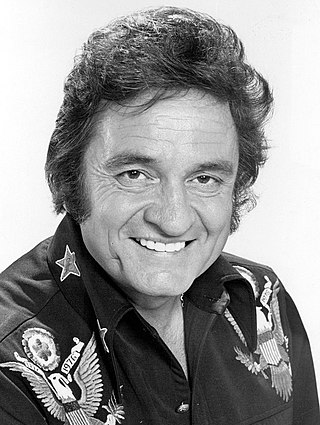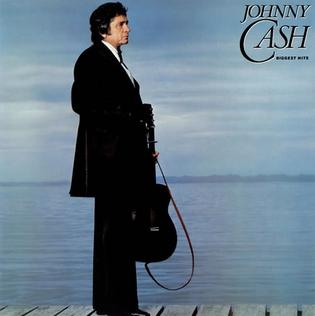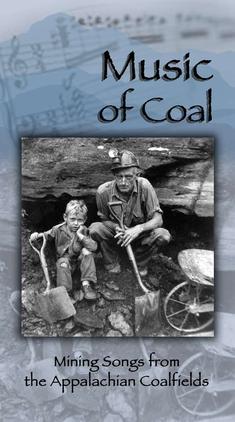Industrial folk music, industrial folk song, industrial work song or working song is a subgenre of folk or traditional music that developed from the 18th century, particularly in Britain and North America, with songs dealing with the lives and experiences of industrial workers. The origins of industrial folk song are in the British industrial revolution of the eighteenth century as workers tended to take the forms of music with which they were familiar, including ballads and agricultural work songs, and adapt them to their new experiences and circumstances. They also developed in France and the US as these countries began to industrialise.

The Louisville and Nashville Railroad, commonly called the L&N, was a Class I railroad that operated freight and passenger services in the southeast United States.
Wallace Victor "Wally" Whyton was a British musician, songwriter and radio and TV personality.

Jean Ruth Ritchie was an American folk singer, songwriter, and Appalachian dulcimer player, called by some the "Mother of Folk". In her youth she learned hundreds of folk songs in the traditional way, many of which were Appalachian variants of centuries old British and Irish songs, including dozens of Child Ballads. In adulthood, she shared these songs with wide audiences, as well as writing some of her own songs using traditional foundations.

"I Am a Rock" is a song written by Paul Simon. It was first performed by Simon alone as the opening track on his album The Paul Simon Songbook which he originally recorded and released in August 1965, only in the United Kingdom. Paul Simon and Art Garfunkel, as the American folk rock duo Simon & Garfunkel, re-recorded it on December 14, 1965, and included as the final track on their album Sounds of Silence, which they released on January 17, 1966. It was released as a single in 1966, and subsequently included as the B-side of the 1971 A-side reissue of "The 59th Street Bridge Song ".

Appalachian music is the music of the region of Appalachia in the Eastern United States. Traditional Appalachian music is derived from various influences, including the ballads, hymns and fiddle music of the British Isles, the African music and blues of early African Americans, and to a lesser extent the music of Continental Europe.

"Love Don't Live Here Anymore" is a song written by Miles Gregory and originally recorded by Rose Royce. It was produced by former Motown songwriter and producer Norman Whitfield for Whitfield Records. Lead vocals were sung by Gwen Dickey and the song was released as the second single from their third studio album Strikes Again. The song was developed as a result of producer Whitfield's interest to work with Paul Buckmaster, the British arranger and composer. Together they asked songwriter Miles Gregory to write a song for them. Gregory's undergoing medical care for his deteriorating physical health became the inspiration behind the song. "Love Don't Live Here Anymore" incorporated the use of the Pollard Syndrum TwinDrum, and was one of the first songs to effectively use the sound reverbs of the instrument. The song was mainly recorded at music contractor Gene Bianco's house, where Dickey was present during the recording.

Unearthed is a box set by American country singer Johnny Cash. It was released by American Recordings on November 25, 2003, two months after Cash's death. The album was compiled by Cash and Rick Rubin, who also produced the set. It was certified Gold on December 2, 2004, by the Recording Industry Association of America.

"For Once in My Life" is a song written by Ron Miller and Orlando Murden for Motown Records' Stein & Van Stock publishing company, and first recorded in 1965.

Orange Blossom Special is the 21st album released by musician Johnny Cash on Columbia Records in 1965. The recordings include country and folk standards, such as "The Long Black Veil", "When It's Springtime in Alaska", "Danny Boy" and "Wildwood Flower".

"This Train Don't Stop There Anymore" is the final track on Elton John's 2001 album Songs from the West Coast. Written by John and Bernie Taupin, the song's lyrics detail John's fame being over and his coming to terms with getting older but still keep touring and giving great performances around the world. It was released as the second single from the album and reached No. 24 in the UK Singles chart and was a Top 10 Adult Contemporary chart hit in the US. The song was less successful in the Netherlands, reaching only at No. 83.

Press On is the Grammy Award-winning second album by singer June Carter Cash. It was released in 1999 by the Risk Records label and then later re-released by the Dualtone label. The album is notable for including June Carter Cash performing her composition "Ring of Fire", which is more closely associated with her husband, Johnny Cash.

John R. Cash was an American country singer-songwriter. Most of Cash's music contained themes of sorrow, moral tribulation, and redemption, especially in the later stages of his career. He was known for his deep, calm bass-baritone voice, the distinctive sound of his Tennessee Three backing band characterized by train-like chugging guitar rhythms, a rebelliousness coupled with an increasingly somber and humble demeanor, free prison concerts, and a trademark all-black stage wardrobe, which earned him the nickname the "Man in Black".

Biggest Hits is a compilation album by country singer Johnny Cash released in 1984 on Columbia Records, consisting of previously released recordings.

Music of Coal: Mining Songs from the Appalachian Coalfields is a 70-page book and two CD compilation of old and new music from southern Appalachian coalfields. The project was produced by Jack Wright and is a benefit for the Lonesome Pine Office on Youth in Wise County, Virginia.
"The Ballad of Casey Jones", also known as "Casey Jones, the Brave Engineer" or simply "Casey Jones", is a traditional American folk song about railroad engineer Casey Jones and his death at the controls of the train he was driving. It tells of how Jones and his fireman Sim Webb raced their locomotive to make up for lost time, but discovered another train ahead of them on the line, and how Jones remained on board to try to stop the train as Webb jumped to safety. It is song number 3247 in the Roud Folk Song Index.

Coal is an album by American country artist Kathy Mattea. It was released on April 1, 2008 via Captain Potato Records and Thirty Tigers. The album consisted of 11 tracks, all of which were stemmed from themes of coal mining in the Appalachian region of the United States. A majority of the album's material were covers of songs previously recorded by other singer-songwriters such as Hazel Dickens and Jean Ritchie. Coal received several positive reviews from critics at the time of its release. It was also Mattea's first album to top the American bluegrass chart and was nominated by the Grammy Awards.

Shine a Light: Field Recordings from the Great American Railroad is a 2016 album of field recordings made by British singer Billy Bragg and American musician Joe Henry as they performed in waiting rooms and trackside at railway stations on a journey between Chicago and Los Angeles in March 2016. The project was conceived after Henry produced Bragg's thirteenth studio album Tooth & Nail at his home studio in South Pasadena. It was released on the Cooking Vinyl label on 23 September 2016. The project is named after a lyric in the traditional folk song "Midnight Special".














